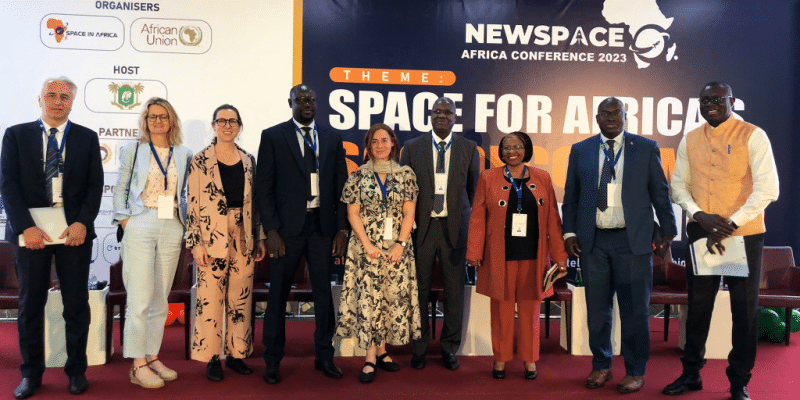The global players in the space industry will be meeting in Luanda, Angola, on Tuesday 2 April 2024 for the NewSpace Africa Conference. This major event in Africa's space sector will provide an opportunity to discuss the contribution space can make to managing the many crises and challenges facing Africa, in particular climate change and the management of natural resources.
What does the future hold for space in Africa? How is it contributing to managing the climate crisis? These and many other questions will be on the agenda at the NewSpace Africa Conference, which opens on 2 April 2024 in Luanda, Angola. The conference will be attended by heads of African space agencies and international private companies, as well as decision-makers and officials from the African Union (AU), such as Tidiane Ouattara, who has just been appointed Chairman of the African Space Council within the African Union Commission (AUC).
In addition to the panels, the event, co-organised by Space in Africa and the African Union (AU), will also feature exhibitions by a number of space industry players, including the US National Aeronautics and Space Administration (NASA), the European Space Agency (ESA) and the Global Monitoring for Environment and Security and Africa (GMES & Africa) programme, which aims to develop space science in Africa.
The development of an African space market
There is also the private sector, which has come into its own in recent years, contributing innovation and funding. These include billionaire Elon Musk’s American company SpaceX and British businessman Richard Branson’s Virgin Galactic. Africa is already home to 270 companies that are increasingly investing in this flourishing sector, whose market is estimated to be worth 19.49 billion dollars by 2021.
Read also- Tidiane Ouattara: “the use of space in Africa is essential”
According to Space in Africa, growth in this sector is set to leap 16% to reach $22.64 billion by 2026. This industry enhances the development of several sectors, including telecommunications, defence, security, maritime, aviation, mining, agriculture, environment, development, education, health, etc. A few months ago, the Kenya Space Agency (KSA) signed a partnership agreement with the Mount Kenya Nature Reserve to exploit satellite images for the conservation of the mountain bongo, a species of antelope in danger of extinction.
This space observation will be carried out using the Taifa-1 satellite launched into orbit in 2023 by the KSA with the support of SpaceX. One of the satellite’s many missions is to provide data on climate change, as Kenya is one of the countries on the continent most affected by this phenomenon, which manifests itself in prolonged droughts in the north. In addition to Kenya, South Africa, Egypt, Algeria, Nigeria, Morocco and Ethiopia have already launched several satellites into Earth orbit.
Jean Marie Takouleu






